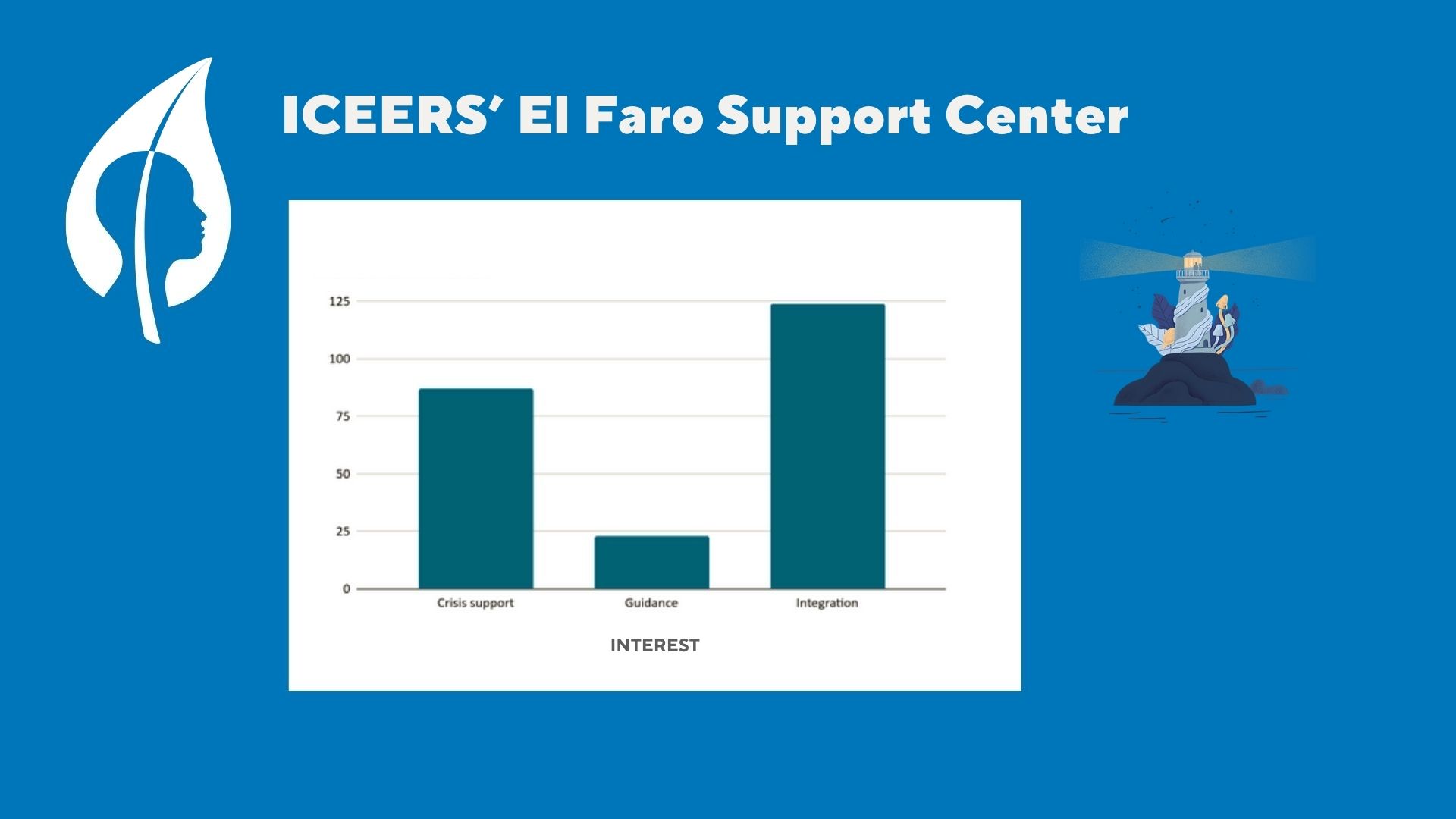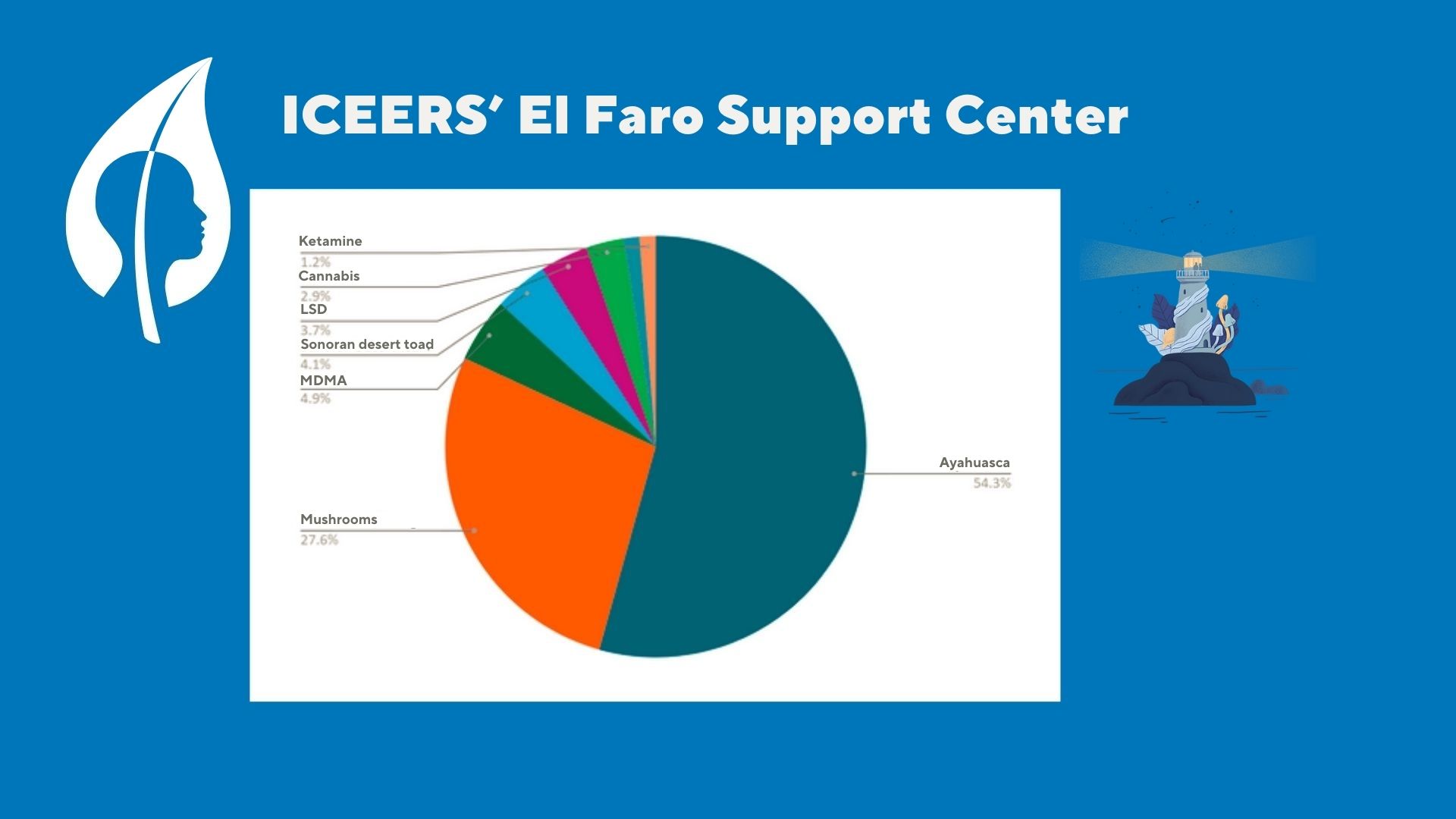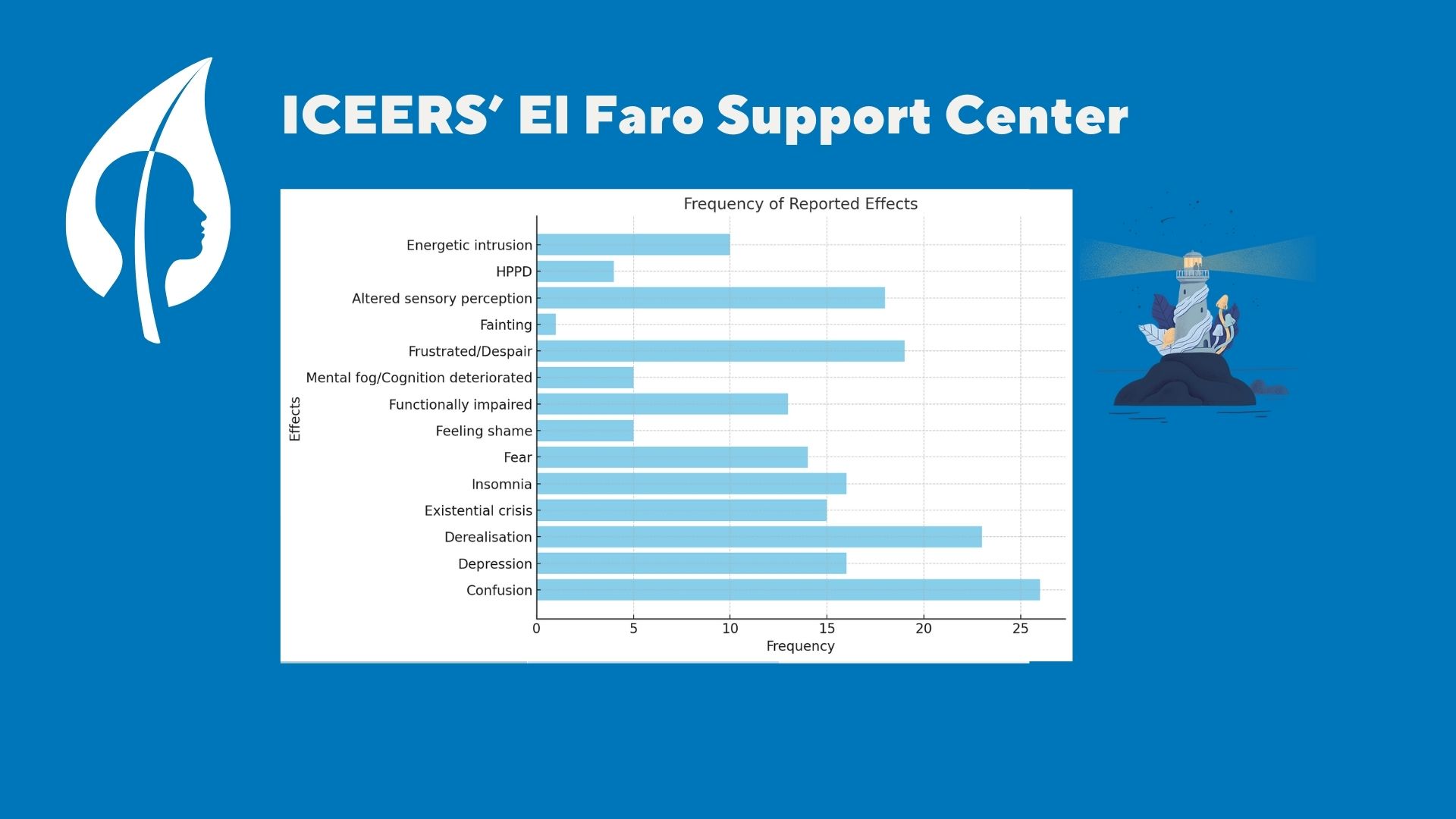ICEERS | April 8, 2025
With the increase in practices with psychoactive plants, the number of people facing difficult experiences is also growing. For more than a decade, ICEERS’ El Faro Support Center has offered a safe, free and confidential space to accompany these processes. In 2024, the service maintained its commitment to serve as a vital support for those facing the emotional challenges arising from these experiences.
ICEERS’ El Faro Support Center, established in 2013, is a project dedicated to researching, preventing and providing support for the risks and difficulties that can arise in relation to working with psychedelics and Traditional Indigenous Medicines. For more than a decade, the team has responded to thousands of questions about interactions between medical treatments and psychoactive substances, as well as offering free support to hundreds of people who did not find adequate professional help after a challenging experience.
In recent years, El Faro has developed tools that allow for a better understanding of the experiences and needs of those who use the service. These people represent a significant part of the reality of the globalization of traditional plants, and offer valuable information on complex and neglected aspects of the relationship between societies in the Global North and psychoactive species in traditional use.
El Faro: A growing necessity
During 2024, El Faro assisted 130 people through the integration service and resolved 247 queries through the medical questions service. Most of those who contacted us were looking for support to integrate the content of their experience or to clarify feelings of confusion. A significant percentage arrived in a state of crisis, with physical or emotional discomfort that was impeding their daily life. They also received some queries aimed at preparing for a future experience or assessing the use of traditional medicines as a long-term therapeutic alternative.

As one of the people treated by the service commented, “I felt trapped in a dark dimension and terrified of not being able to escape. The nightmares of being trapped and dying don’t stop, and when I’m awake, I’m constantly anxious and nauseous. I need help.” This kind of testimony reflects the intensity of the processes that many people go through alone.
Among the substances related to the experiences reported by those who contact us, the most frequent is ayahuasca, followed by psilocybin, and to a lesser extent by MDMA, Sonoran desert toad, LSD or San Pedro, among others. In terms of gender, the service consistently receives more queries from women than from men, a situation that is also reflected in the medical questions service. The most common profile is that of a woman seeking integration after an experience with ayahuasca.

One significant piece of data is the variability in the duration of the distress: from weeks to several years. This forces us to think about accessibility to support resources, taking into account that the after-effects can emerge over time. It also invites reflection on the factors that influence how and when a person decides to ask for help.
Understanding the complexity of the effects
Among the reported effects, El Faro distinguishes three categories to facilitate a comprehensive understanding: physical, psychological and spiritual or metamaterial. Physical effects include somatic symptoms and physiological reactions. Psychological effects include changes in perception, mood or cognition. Spiritual or metamaterial effects, although difficult to categorize in biomedical terms, are profoundly real for those who experience them: encounters with entities without physical form, the presence of invisible forces or perceptions of another order of reality.
These effects can cause profound disruption to everyday life: difficulty sustaining routines, social isolation, relationship tensions or a feeling of estrangement from one’s own existence. In these contexts, the absence of professional support can push people towards less rigorous resources, which do not contemplate the multidimensionality of these experiences.

Among the risk factors identified are the emergence of traumatic content (personal, transgenerational, cultural), the appearance of emotionally charged memories that blur the boundaries between reality and imagination, and the difficulties in integrating these revelations. Situations of negligence or abuse in ceremonial contexts are also reported, including inappropriate behavior, manipulation or sexual abuse. In people with a history of trauma, these experiences can lead to emotional revictimization.
Another relevant factor is the lack of preparation before the experience or of subsequent integration. Many people claim to have consumed substances without adequate information. An intense experience in a fragile emotional state can be overwhelming, and without a proper space for integration, the consequences could become chronic.
It is important to emphasize that we do not attribute these adverse effects solely to the plant or substance itself. One of the main challenges in researching psychedelics and Traditional Indigenous Medicines is to understand how the effects can derive not only from the substance, but also from the complex interaction between various factors: the person, their previous psychological state, the context in which the experience takes place, and the preparation or lack thereof. Each individual responds differently to these experiences, and the variables at play can profoundly modify the course of the experience.
Support based on listening and respect
The support offered by El Faro is based on active listening, respect for individual paces and a non-pathologizing perspective. Most of the people who receive support say that the integration has allowed them to better understand their situation, to feel listened to and not judged, and to move from a state of discomfort to greater stability. As one individual assisted by the Support Center relates, “after a very strong experience with plants, I was totally unstructured, I didn’t know who I was, I couldn’t leave the house, I had been like that for months. Thanks to the integration work, I have been able to better understand what happened that night. The road is long, but I feel like I can see the way out.”
This kind of support has also been fundamental for those who, in their role as facilitators, face complex situations that exceed their competence. In the words of one of them: “Thank you very much. As a facilitator of ceremonies, sometimes people come to me with problems that are beyond my abilities. I’m very good at leading plant sessions, but I’m not a doctor! The medical questions service has helped me determine when I can share plants with certain people and when I can’t.”
Although more people claim to have found lasting benefits, we cannot ignore the fact that some have not had positive experiences. This highlights the importance of recognizing that psychedelics and plants are not appropriate or recommended for everyone.
The data collected in El Faro serves as a basis for future research to better understand the needs of those who go through difficult experiences with psychoactive plants, taking into account cultural, gender, and contextual dimensions. The experiences collected allow us to broaden our view of the challenges of the globalization of traditional medicines and promote greater collective responsibility in their use.
In most cases, with an average of between one and three sessions, people reduce their anxiety levels and stabilize. In many cases, integration is a starting point for becoming aware of the need to address underlying personal issues or problems, to come into contact for the first time with emotions, motives, or situations that were outside the person’s field of consciousness, and which lead them to initiate other longer-term therapeutic processes. In this sense, working with these plants can be understood, according to the Indigenous vision, as a catalyst for initiating a transformative process.
However, in other cases the intensity of the discomfort is very intense and has a high impact on the person’s life, so the sessions focus on directing them to other more appropriate sources of help. This is why El Faro works by forging alliances and networks with other local and international services that can multiply the ways of supporting the people who consult them.
El Faro: A guiding light amid the waves
El Faro by ICEERS exists to respond to a reality. It reflects society’s increasingly frequent adoption of community-based self-care practices that are complementary or alternative to modern medicine.
Based on the arguments of the people who use our service, these trends are related, in part, to a subjective experience of dissatisfaction with conventional treatments for mental health. However, the vast majority of people who participate in these practices do so not to solve problems or discomforts, but as an autonomous health habit shared with others, promoting a way of being in the world that differs from and challenges other conceptions of well-being, or how patterns of health and discomfort are governed, in today’s modern colonial society.
The stories that reach El Faro speak of extreme situations. Of legitimate searches that, without adequate support, can lead to fear, isolation or a loss of meaning. But they are also stories of transformation: of people who, with support, begin to rebuild what has been broken, to integrate the incomprehensible and to reconnect with themselves. In the face of loneliness and confusion, El Faro represents a light. A discreet but constant presence that accompanies without imposing, that listens without judging, and that trusts that, even in the midst of the storm, there is always a way back home.
Categories:
NEWS
Tags:
psychotherapy
, social support
, support
, psychedelic integration
, accompaniment
, Support Center

